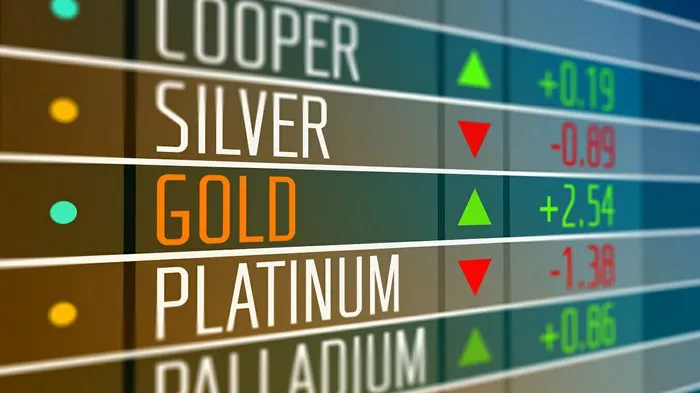Fuel futures, a derivative financial instrument, provide investors with the opportunity to speculate on the future price movements of various energy commodities, including oil and gas. Trading in fuel futures involves contracts that obligate the buyer to purchase or the seller to sell a specified quantity of fuel at a predetermined price and future date.
Understanding Fuel Futures
Fuel futures are financial contracts that derive their value from an underlying asset, such as crude oil, natural gas, or other energy commodities. These contracts are traded on futures exchanges, providing a standardized platform for buyers and sellers to engage in transactions. The primary purpose of fuel futures is to hedge against price volatility or to speculate on future price movements. Investors can choose from a variety of fuel futures contracts, each representing a specific type of fuel, delivery location, and expiration date.
Choosing the Right Fuel Futures Contract
The first step in buying fuel futures is selecting the appropriate contract that aligns with your investment goals and risk tolerance. Different fuel futures contracts may represent distinct grades of oil, such as West Texas Intermediate (WTI) or Brent Crude, each with its own market dynamics. Consider the delivery location, contract expiration date, and associated costs. Conduct thorough research on the factors influencing the fuel market, geopolitical events, and economic indicators that can impact fuel prices. This information will aid in making informed decisions when choosing the most suitable fuel futures contract.
Opening a Futures Trading Account
To actively engage in fuel futures trading, individuals need to open a futures trading account with a reputable brokerage firm. Choose a broker that offers access to the specific fuel futures contracts you are interested in and provides a user-friendly platform for executing trades. During the account opening process, investors are typically required to provide personal information, financial details, and may need to demonstrate their understanding of futures trading. Additionally, ensure that the chosen broker is registered with relevant regulatory authorities to guarantee a secure trading environment.
Risk Management and Margin Requirements
Fuel futures trading involves inherent risks, and understanding how to manage these risks is crucial for successful participation in the market. Brokers often require investors to maintain a margin account, which acts as a form of collateral to cover potential losses. Margin requirements vary between brokers and depend on factors such as the volatility of the chosen fuel futures contract. It is essential for investors to have a clear understanding of margin calls, leverage, and risk tolerance to navigate the market effectively and avoid potential liquidation of positions.
Technical and Fundamental Analysis
Fuel futures prices are influenced by a multitude of factors, including supply and demand dynamics, geopolitical events, economic indicators, and weather patterns. Engaging in both technical and fundamental analysis is essential for making informed trading decisions. Technical analysis involves studying price charts, trends, and statistical indicators to identify potential entry and exit points. Fundamental analysis, on the other hand, requires a comprehensive understanding of the broader economic factors influencing fuel prices, such as global demand, geopolitical tensions, and production levels.
Placing Buy Orders and Executing Trades
Once you have selected a fuel futures contract, conducted thorough research, and established a risk management strategy, it’s time to place buy orders and execute trades. Using the trading platform provided by your chosen broker, enter the relevant details, including the type of order (market order, limit order, or stop order), quantity, and expiration date. Review and confirm your order before finalizing the trade. It’s important to stay informed about market conditions and be prepared to adjust your trading strategy based on emerging trends and news that may impact fuel prices.
Monitoring Positions and Market Trends
After executing fuel futures trades, active monitoring of positions and market trends is essential. Utilize the tools and resources provided by your broker to track price movements, assess the effectiveness of your trading strategy, and make adjustments as needed. Stay informed about market news, geopolitical developments, and economic indicators that can influence fuel prices. Regularly reviewing your portfolio and adjusting stop-loss orders or profit-taking levels helps manage risk and optimize returns.
Closing Positions and Taking Profits
Knowing when to close positions and take profits is a critical aspect of fuel futures trading. Investors can close positions by entering sell orders on their chosen futures contracts. Establish profit-taking levels based on your trading strategy, risk-reward ratio, and market conditions. Consider setting stop-loss orders to limit potential losses and protect gains. Regularly reassess your trading plan and adjust profit-taking and stop-loss levels as market conditions evolve.
Tax Implications of Fuel Futures Trading
It’s crucial for investors engaged in fuel futures trading to be aware of the tax implications associated with their activities. Profits and losses from futures trading may be subject to capital gains tax, and the specific tax treatment can vary based on factors such as holding period and individual tax regulations. Consult with a qualified tax professional to ensure compliance with tax laws and to optimize your tax strategy in relation to fuel futures trading.
Conclusion
Buying fuel futures can be a rewarding but complex venture that requires careful planning, risk management, and continuous market monitoring. Understanding the dynamics of fuel markets, conducting thorough research, and staying informed about global events are key elements of successful fuel futures trading. By choosing the right futures contracts, utilizing technical and fundamental analysis, and implementing effective risk management strategies, investors can navigate the dynamic world of fuel futures and potentially capitalize on market opportunities. However, it’s crucial to recognize the inherent risks involved and approach fuel futures trading with a well-informed and disciplined mindset to enhance the likelihood of success in this challenging financial landscape.


